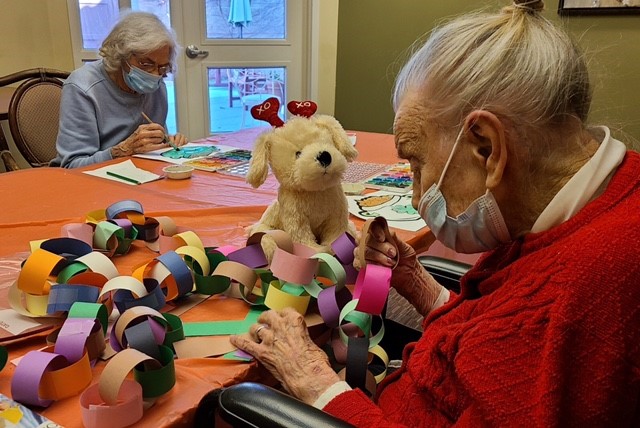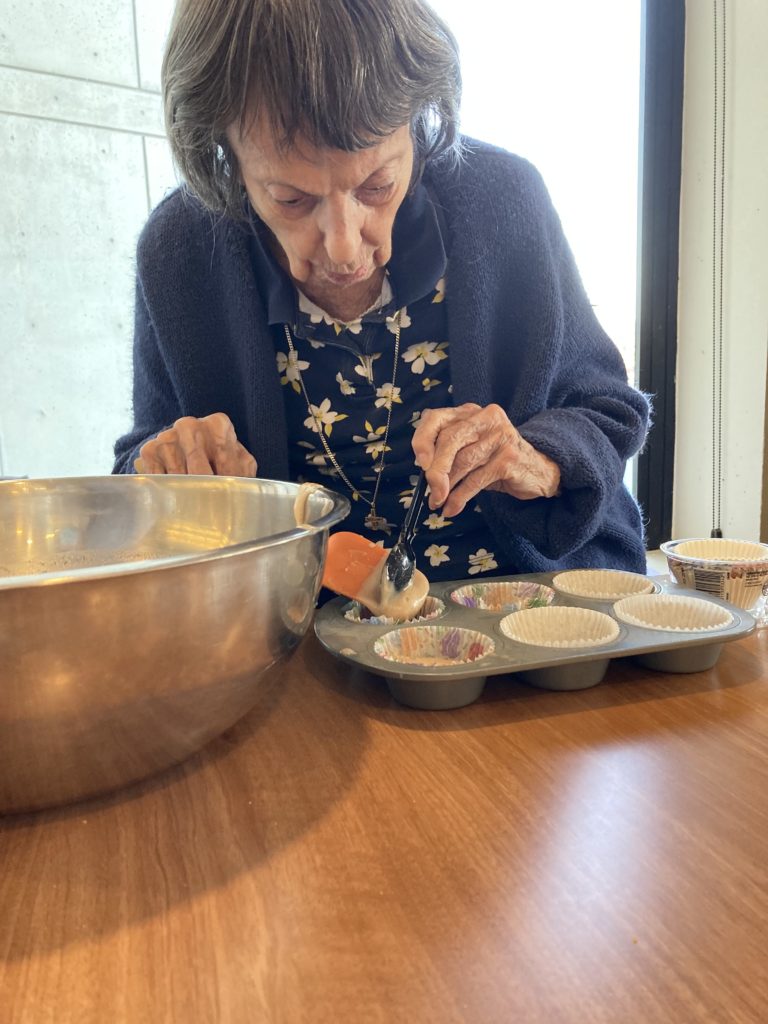Memory care – it sounds simple enough, but what exactly is it? Well, it is a senior living community built to care for older adults who have Alzheimer’s or other forms of dementia. When at-home care is no longer sufficient or potentially un-safe for your loved one a memory care community is an option. Memory care can provide a nurturing, supportive environment with a high level of personal care. Memory care communities typically offer a number of specialized features to reduce residents’ anxiety and risk of wandering.

In memory care, compassionate staff members may be able to help your loved one maintain independence for as long as possible. Elder Care Alliance’s innovative and engagement-focused memory care program is based on the I’m Still Here® philosophy. This evidence-based approach is founded on the belief that every person in need of memory support, dementia care or Alzheimer’s care is fully capable of experiencing a high quality of life, regardless of the severity of memory loss. I’m Still Here® focuses on addressing irritability, aggression, apathy and anxiety behaviors of dementia non-pharmacologically.
Stages of Dementia and Care
No two people will experience memory loss in exactly the same way. Care needs vary depending on the type and stage of the cognitive impairment as well as the overall health and personality of the individual. Because memory loss is often progressive, most people will need increasing amounts and different kinds of care as time goes on. While more care will be necessary to keep people safe, the positive approach to care is effective at all stages of the disease.
Early Stage (Mild)
In the early stages of memory loss, most people can continue to work, drive and live their lives as normal as possible. Symptoms may not be as apparent, but the person may feel as if they are having memory lapses like forgetting familiar words or names, where everyday items are, etc.
While memory care isn’t needed at this point, this is an ideal time to take control of your health and wellness while focusing energy on aspects of your life that are most meaningful.
Middle Stage (Moderate)
The middle stage is typically the longest stage and can last for many years. As the disease progresses, the person will require a greater level of care. Symptoms are becoming more pronounced. The person may start to get more frustrated or angry and act in unexpected ways, such as refusing to bathe.
In the middle stage, the person living with dementia can still participate in daily activities with assistance. It’s important to find out what the person can still do or find ways to simplify tasks.
Late Stage (Severe)
In the final stage of the disease, dementia symptoms are severe. Individuals lose the ability to respond to their environment, to carry on a conversation, and eventually, to control movement. They may still say words or phrases, but communicating pain becomes difficult. As memory and cognitive skills continue to worsen, significant personality changes may take place and individuals need extensive care.
Although in this stage they may not be able to initiate engagement as much they can still benefit from interaction in ways that are appropriate, like listening to relaxing music or receiving reassurance through gentle touch.
A Day at Elder Care Alliance’s Memory Care Neighborhoods

Residents with Alzheimer’s or dementia are always fully supported and inspired to be confident, capable of learning and growing, and encouraged to create. Paramount to the care we provide is helping each resident feel safe and comfortable while continuing to provide intellectual stimulation and engagement in life experiences. Elements of evidence-based memory care include:
- Adapted environments
- Specialized communication techniques
- Individualized learning approaches
- Parallel programming, adapted to the stage of the disease
- Purposeful social roles
Dignity and Purpose
Through the I’m Still Here® approach to memory care in our Elder Care Alliance communities, we’ve seen residents thrive through their diagnosis and live out their lives with dignity and purpose. It is important to meet each individual where they are.
Our team combines specialized training with programming techniques designed for those with cognitive impairment delivered in a comfortable, residential setting.
For example, a resident who was in the late stages of dementia needed assistance with eating. Her caregiver didn’t just simply feed her, but sat with her, put her hand on her arm, giving her that human interaction and care. It is that connection and reassurance that makes an impact on our resident’s quality of life. Elder Care Alliance’s mission is to help provide the highest quality of life for seniors and their loved ones. Contact us to learn more about I’m Still Here® and memory care in one of our four assisted living and memory care communities, or take our care needs assessment.




















